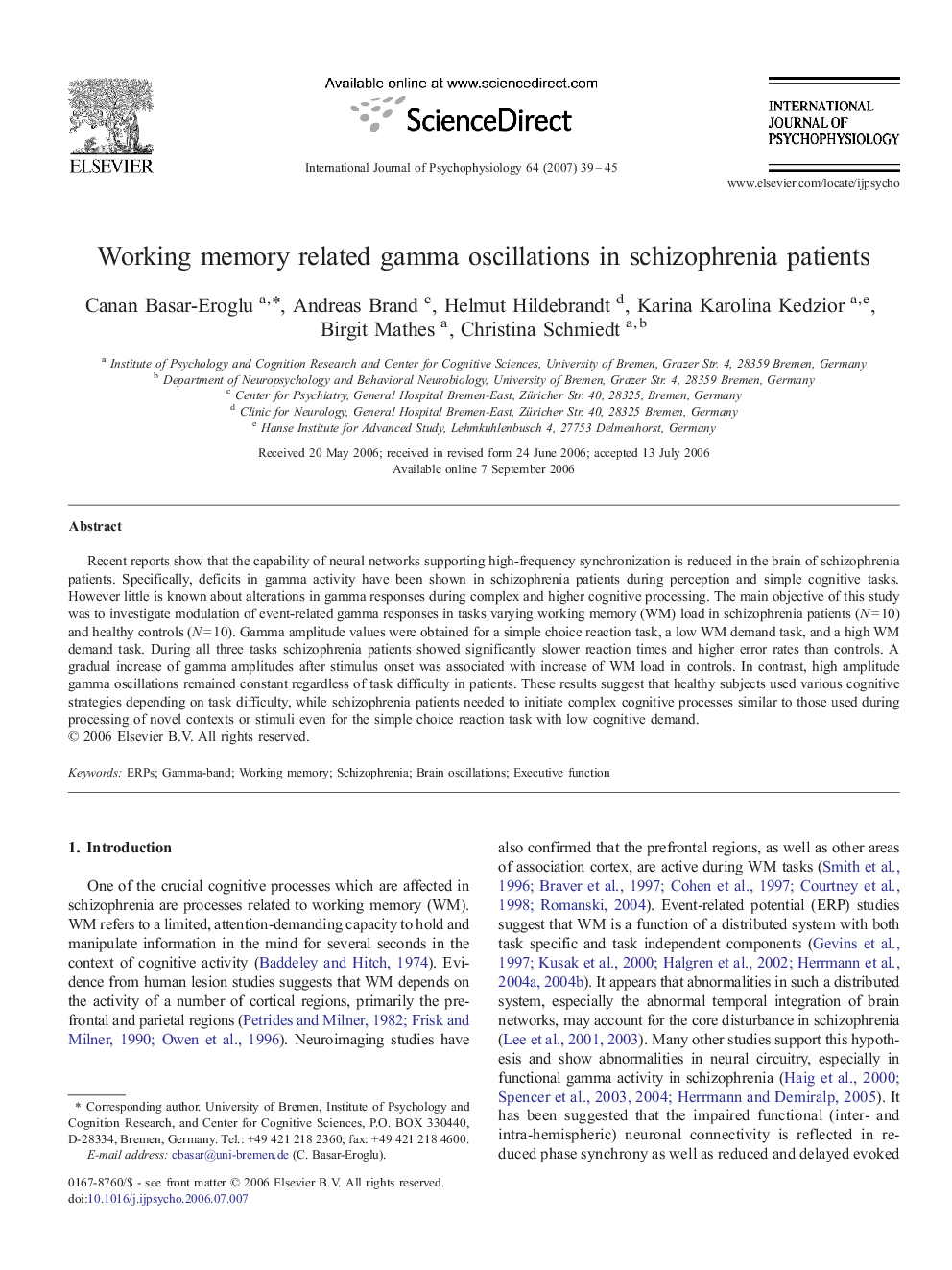| Article ID | Journal | Published Year | Pages | File Type |
|---|---|---|---|---|
| 931258 | International Journal of Psychophysiology | 2007 | 7 Pages |
Recent reports show that the capability of neural networks supporting high-frequency synchronization is reduced in the brain of schizophrenia patients. Specifically, deficits in gamma activity have been shown in schizophrenia patients during perception and simple cognitive tasks. However little is known about alterations in gamma responses during complex and higher cognitive processing. The main objective of this study was to investigate modulation of event-related gamma responses in tasks varying working memory (WM) load in schizophrenia patients (N = 10) and healthy controls (N = 10). Gamma amplitude values were obtained for a simple choice reaction task, a low WM demand task, and a high WM demand task. During all three tasks schizophrenia patients showed significantly slower reaction times and higher error rates than controls. A gradual increase of gamma amplitudes after stimulus onset was associated with increase of WM load in controls. In contrast, high amplitude gamma oscillations remained constant regardless of task difficulty in patients. These results suggest that healthy subjects used various cognitive strategies depending on task difficulty, while schizophrenia patients needed to initiate complex cognitive processes similar to those used during processing of novel contexts or stimuli even for the simple choice reaction task with low cognitive demand.
